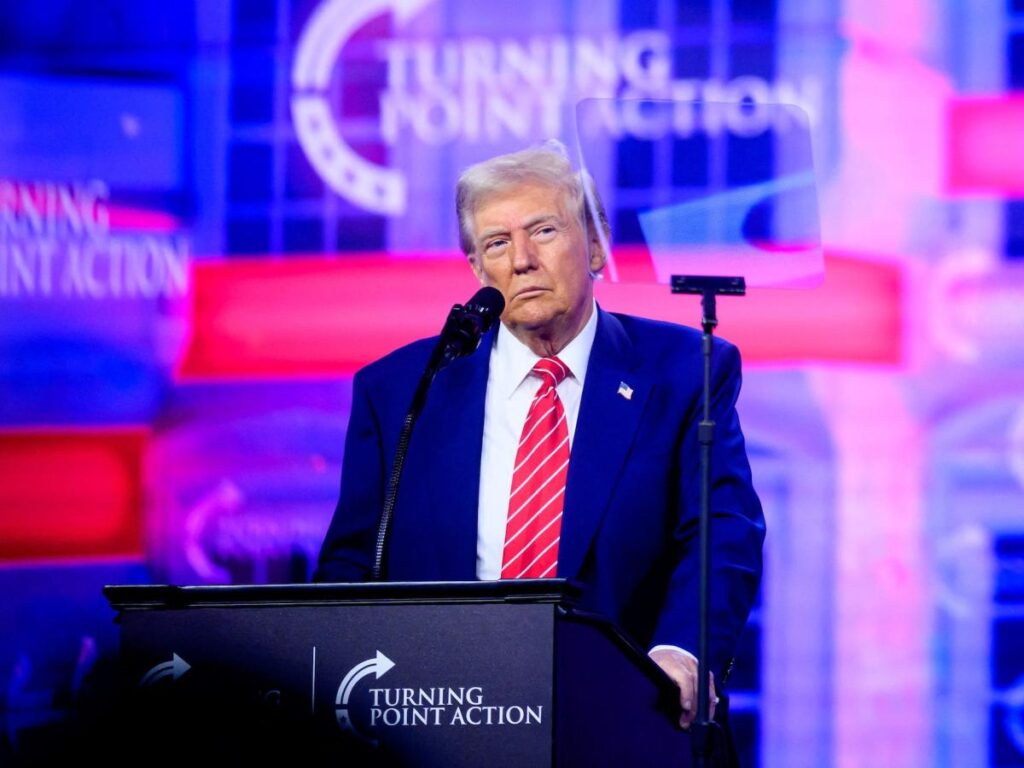In recent statements, former President Donald Trump has reignited his historical advocacy for U.S. control over Greenland, a notion he initially proposed in 2019 when he suggested purchasing the island from Denmark. Trump’s latest remarks surfaced alongside comments threatening to take control of the Panama Canal, reasserting his long-standing views on U.S. territorial expansion and geopolitical strategy. On social media platform Truth Social, Trump emphasized that for national security and global freedom, the ownership of Greenland is essential. These assertions coincided with his announcement of Ken Howery as his nominee for U.S. Ambassador to Denmark.
Greenland, known as the world’s largest island, holds strategic significance as an autonomous territory of Denmark and is a close ally of the United States, being a member of NATO. Trump’s renewed emphasis on Greenland is particularly notable against the backdrop of increasing global competition for Arctic resources, where nations like Russia are asserting their influence. The island is not only rich in natural resources but also occupies a critical location in the Arctic, making it a focal point for geopolitical maneuvering.
In his recent post, Trump lauded the United States’ historical contributions to Panama, which underscores his frustration over the fees charged by the Panamanian government for use of the canal. He deemed these fees as excessive, asserting that Panama’s economic dependency on the U.S. support requires them to reconsider their financial policies surrounding the canal. According to Trump, if Panama does not comply with what he perceives as a fair arrangement, he would demand the canal’s return, invoking both legal and moral justifications for such action.
The Panama Canal has been under the authority of the Panama Canal Authority since 1999, following a treaty signed in 1977 by President Jimmy Carter. The U.S. initially controlled the canal, and its transition to Panamanian governance was predicated on the assumption of mutual benefits between the two nations. Currently, the canal is a vital economic asset for Panama, generating significant revenue through transit fees from commercial vessels navigating between the Atlantic and Pacific Oceans.
Trump’s advocacy for controlling both Greenland and the Panama Canal reflects a broader trend of prioritizing national security and economic interests in foreign policy. His approach emphasizes a transactional view of international relationships, proposing that the U.S. should leverage its historical generosity for greater control over these strategic assets. As such, his statements invite dialogues about territorial sovereignty and the implications of prioritizing American interests on the global stage.
The renewed interest in Greenland and the Panama Canal highlights ongoing tensions in international relations, particularly as countries contest for resources and geopolitical dominance. While Trump’s proposals might resonate with a segment of his political base, they also provoke uncertainty regarding the U.S.’s diplomatic commitments and the potential consequences of aggressive territorial claims. As the geopolitical landscape continues to evolve, the ramifications of such statements call for careful consideration and nuanced discussions within the realms of both domestic and foreign policy.

